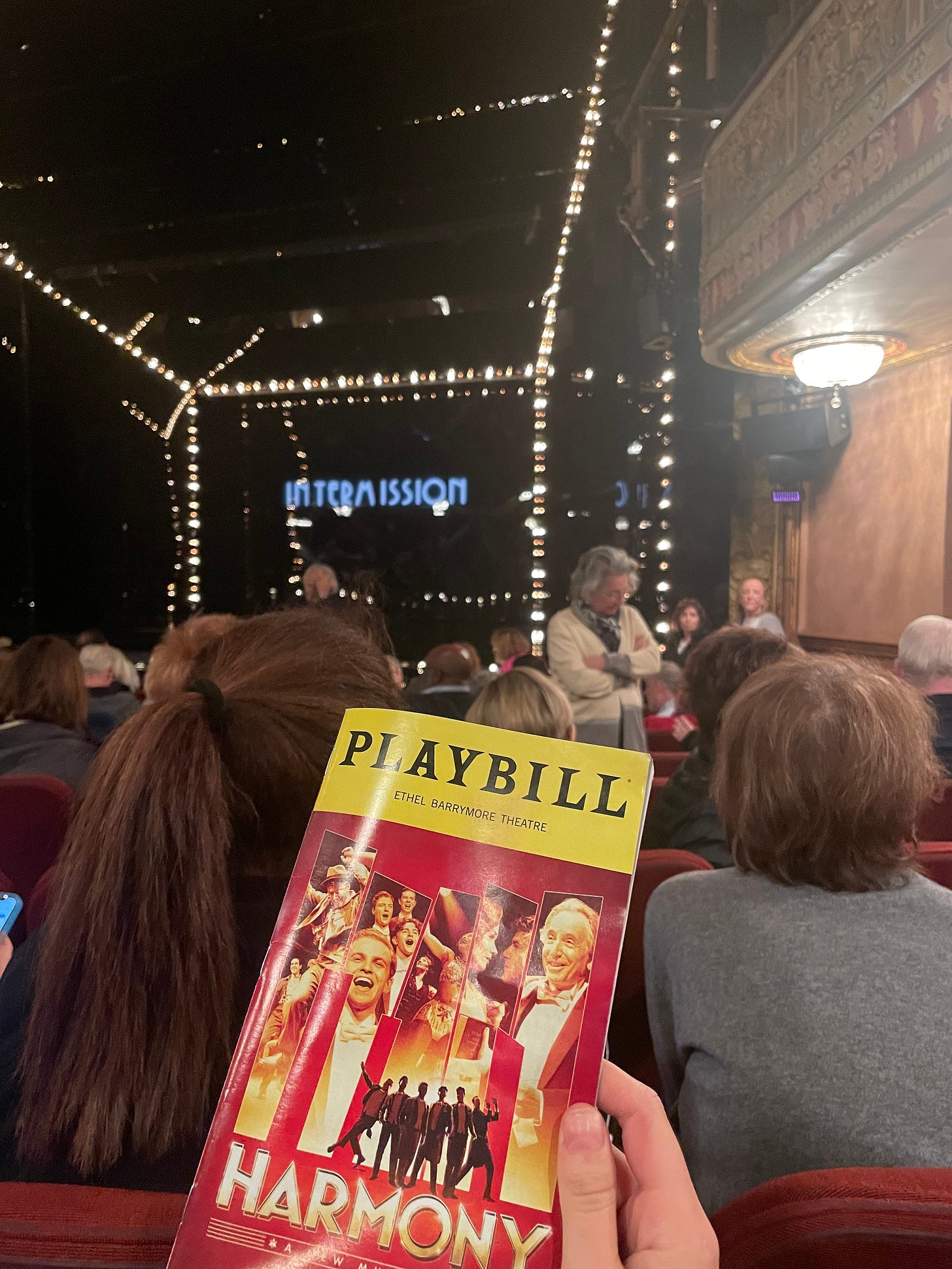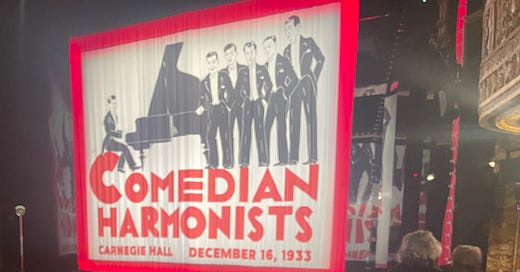“Harmony,” or the One All the Critics Hated but I Think You Should See
"Harmony" dazzled and made me cry, even if it wasn't perfect.
There have been a lot of critical reviews of “Harmony.” If you’re looking for the same view as infamous NYT critic Jesse Green, this is your warning to stop reading now. If you’re not, welcome!
Here’s the gist:
How I found out about it: Julie Benko, who was the understudy for Fanny Brice in the recent revival of “Funny Girl.” I started following her on TikTok and Instagram a bit after seeing the show. I have watched this video of her singing “I’m the Greatest Star” at least 30 times.
Why I went: Julie Benko, honestly. I also was really compelled by some of the early footage of the show at their press day.
How I got tickets: Theatre Development Fund (TDF)! All of their Broadway shows are $60, and I’ve always ended up in the orchestra.
I liked “Harmony.” An original musical new to Broadway, “Harmony” tells the true story of a male ensemble group in 1920s Germany. Known as the “Comedian Harmonists,” the group rose to international fame during the rise of fascism, then vanished. “Harmony” tells us why.
This musical has a lot of the things I look for in a show. It’s original, featuring music by Barry Manilow and book and lyrics by Bruce Sussman. (The show’s advertising really emphasizes this, but if you’re dumb and live under a rock like me, these are the people who wrote “Copacabana” and lots of other things.) The story is engaging and interesting and relevant. It has actors that are exciting to see. (I was particularly looking forward to seeing Julie Benko in her newest role, hearing Sierra Boggess’ beautiful soprano, and watching Chip Zien in real life after listening to him in the “Into the Woods” recordings for forever.) It also has many actors that are making their Broadway debuts (!!). I wouldn’t say a big musical is a requirement for me loving it, but this is a show where a lot of people get to show off a lot of talent.
With all of these elements combined, “Harmony” is both an exciting and emotional watch. While the show’s main marketing advertises mostly the glitz and golden glam of what the Comedian Harmonists were, I think the most compelling part is that the show is more than their origin story. It’s about the group and how its history is still relevant right now.
This relevance comes through in Chip Zien’s character, which acts as a framing device. He tells the story as an older version of Rabbi, one of the Comedian Harmonists, but he’s not just a narrator. At times, he is an active part of the story, jumping in to sing along; at others, he is literally confronting the younger version of himself, questioning his own choices, attempting to change his fate.
Other reviews critique this framing, saying it would be better to focus on developing each of the men in the group or the love stories with their wives. (I mean, yes, I absolutely would have loved to see more depth and stage time for Julie Benko and Sierra Boggess.) In a perfect world, it wouldn’t have to be a trade off. The story of the Comedian Harmonists alone would be powerful enough to make an audience emotional, but having a present figure tell the story enforces the idea that we need to be hearing it.

Harmony isn’t perfect. The first act is messy, there are some parts that hit you a little over the head, and the projections are a little primitive. Yet it is beautiful, moving, and filled with talented actors. “Harmony” is not just about bringing this group back to life, but to encourage the audience to relive their history with them.
It’s likely why this line, spoken by Chip Zien’s character, gets applause every night: “‘The world will not be destroyed by those who do evil but by those who watch them and do nothing.’”





